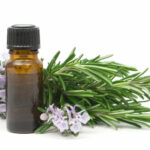What you should know about aromatherapy
If you expect aromatherapy to cure a major illness, you will probably be disappointed, according to AromaWeb — a source of practical information on this complementary treatment.
The available scientific evidence (such as it is) supports this statement. The Natural Standard website (which charges a membership fee) conducted literature reviews on the various applications of aromatherapy and concluded that even for the best documented conditions (eg, anxiety and agitation), the data are conflicting and based on small, poorly designed trials.
However, to conclude from this that aromatherapy is to be avoided would be excessive. Its current use is not intended to replace standard medical care but complement it. If using volatile plant oils, including essential oils, improves your sense of psychological and physical well being, by all means, indulge yourself.
Final comment. Essential oils are highly concentrated and can be harmful if not used carefully.
- Essential oils should never be used undiluted on the skin
- Some oils can cause sensitization or allergic reactions
- Avoid some essential oils during pregnancy or if you have asthma, epilepsy, or certain other health conditions
- Use the smallest amount that will get the job done
- Not all essential oils are suitable for use in aromatherapy
- Never let children use essential oils without the presence of an adult knowledgeable about their use
- Essential oils should not be taken internally
- Essential oils are flammable
7/14/06 09:10 JR
